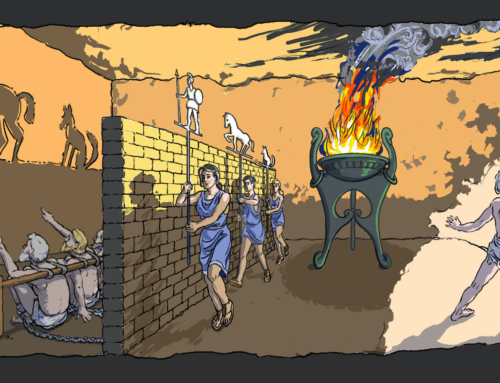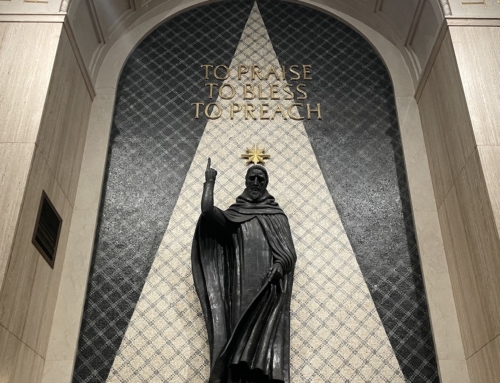When my parents moved out into the country about ten years ago, my father took upon himself a difficult weekend project. The biggest eyesore on their new homestead was ten acres of pasture dominated by dense thickets and chest-high weeds. The area had been ignored for several years, and the overgrowth was so intense that there were only a few tiny patches of grass left. The horses had to maneuver their way through this wilderness by means of a series of narrow trails. After surveying the territory, my father decided it was time to make use of his newly acquired tractor and bush-mower. Before anything could be done with this land, it needed to be completely cleared.
I think this provides an apt image for the situation many people find themselves in with regard to the faith: there are many obstacles, and a lot of brush needs to be cleared. Sometimes, all you can do for people is help remove obstacles to belief. In this regard, it can be helpful to remember that, while there are truths of the faith that can be known by reason alone (such as the fact that God exists or that God is one), most of what we believe exceeds our natural cognitive abilities and demands supernatural faith. For example, we cannot prove that God is a Trinity of persons—Father, Son and Holy Spirit; we only know God is a Trinity because God has revealed this to us.
Now, if someone flat-out rejects divine revelation, it might be tempting to try to offer him some sort of proof for what has been divinely revealed. But we need to resist this temptation. Intellectually, all we can really do for such a person is help remove obstacles to belief; we can show him or her that the faith is not irrational, that it accords with what we know about the world and about humanity. But we cannot prove the Incarnation, the Redemption, or the Resurrection. Indeed, if we could, we wouldn’t have faith. Moreover, if we could actually wrap our feeble minds around these divine realities, they wouldn’t really be divine.
Near the beginning of the Summa Theologiae, St. Thomas Aquinas’ articulates one of the principles that permeates his entire theological project:
Since faith rests upon infallible truth, and since the contrary of a truth can never be demonstrated, it is clear that the arguments brought against faith cannot be demonstrations, but are difficulties that can be answered.
Although it might seem that there is not much we can do for someone who adamantly argues against divine authority, there is in fact a great deal we can offer: we can indicate the ways in which objections to the faith do not hold. Since the truths of the faith rest upon the revelation of God, who cannot deceive, arguments against the faith cannot be demonstrative. Thus, if we take the trouble to educate ourselves, we can approach objections to the faith with confidence, knowing that they are not insurmountable. In the same way, although my father realized he had a daunting task in reclaiming his pasture, he also knew that he had adequate equipment for dealing with the problem: a six-foot bush hog and a Massey Ferguson tractor.
In our own day, obstacles to the faith come a in a variety of forms: a thicket of moral objections (how can the true Church have sinful members or leaders?) along with a few weeds of doctrinal difficulties (why purgatory?) and some fallen branches of existential problems (how can God tolerate evil?). We all know people—perhaps they are friends or members of our own family—who say, “I would believe if it were not for x” or “I am really angry about y.” In response, it might just be our task gently to point out that these difficulties are not actually proofs against the faith. They will never amount to conclusive demonstrations, but will always remain just what they are: difficulties. And, as Blessed John Henry Newman said, “Ten thousand difficulties do not make one doubt.”
Moreover, such difficulties are often easily answered; sometimes they are built on a simple misunderstanding, and clearing them up can render someone utterly open to the grace of the Holy Spirit and the gift of faith. When the weeds and thickets of confusion and ignorance are removed from the mind and heart, the lush prairie grass of understanding begins to grow almost automatically. Even my father, despite his inexperience in farming matters, was more than capable of mowing down that stubborn vegetation and turning his pasture into grassy grazing-ground for dozens of cattle.
✠
Image: Nicholas Blowers, Willow Gully I







